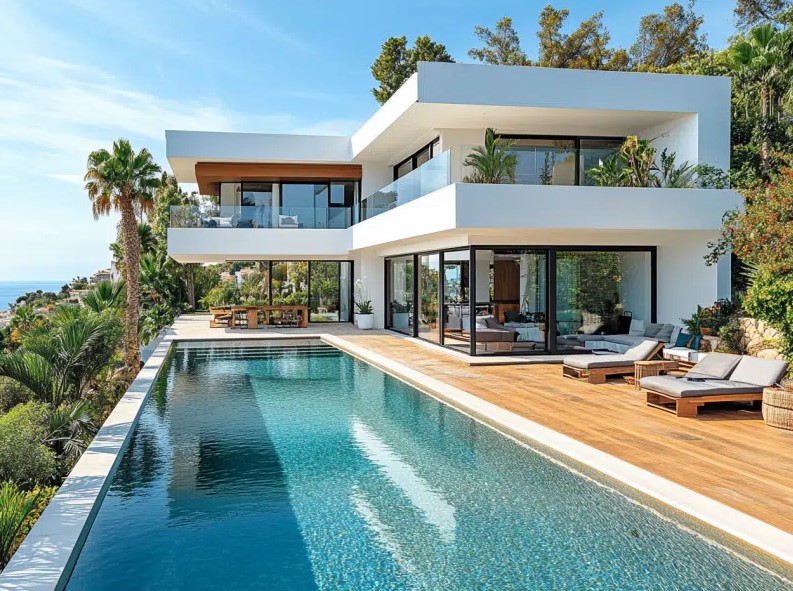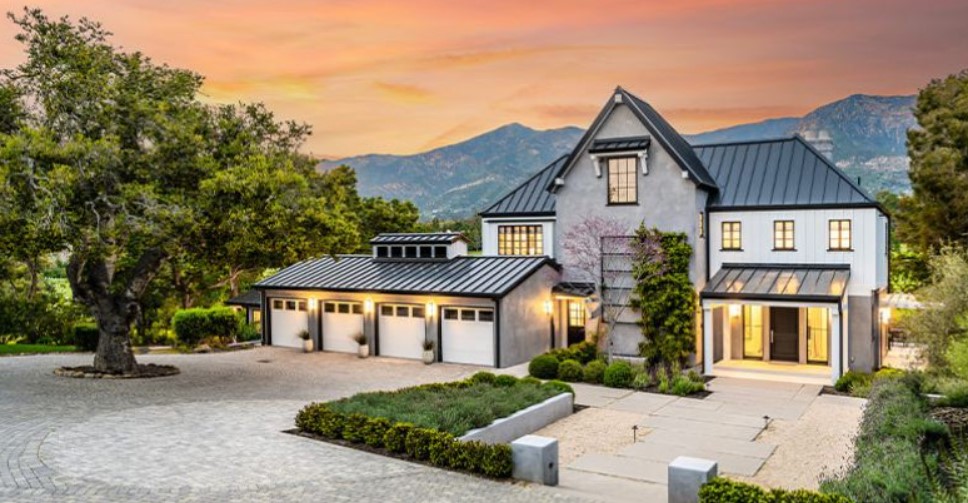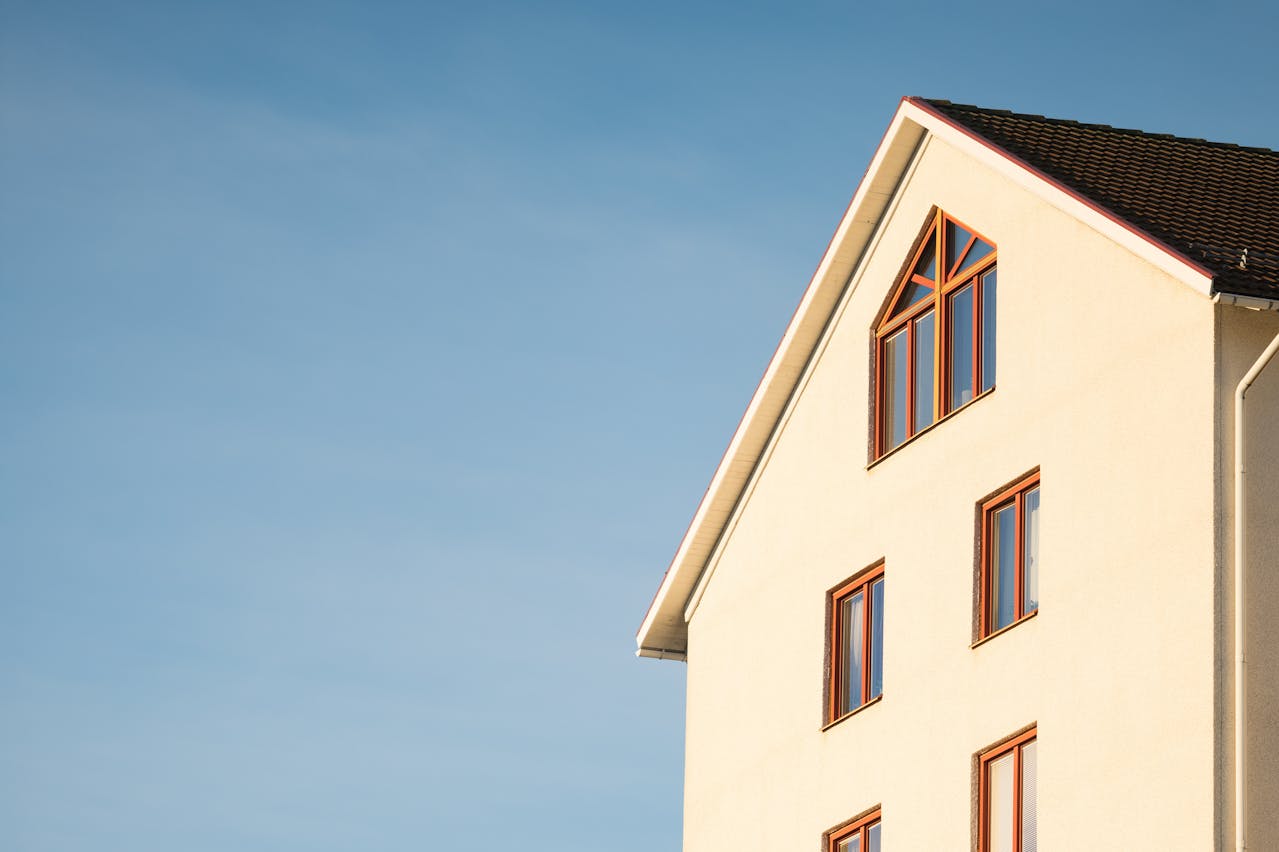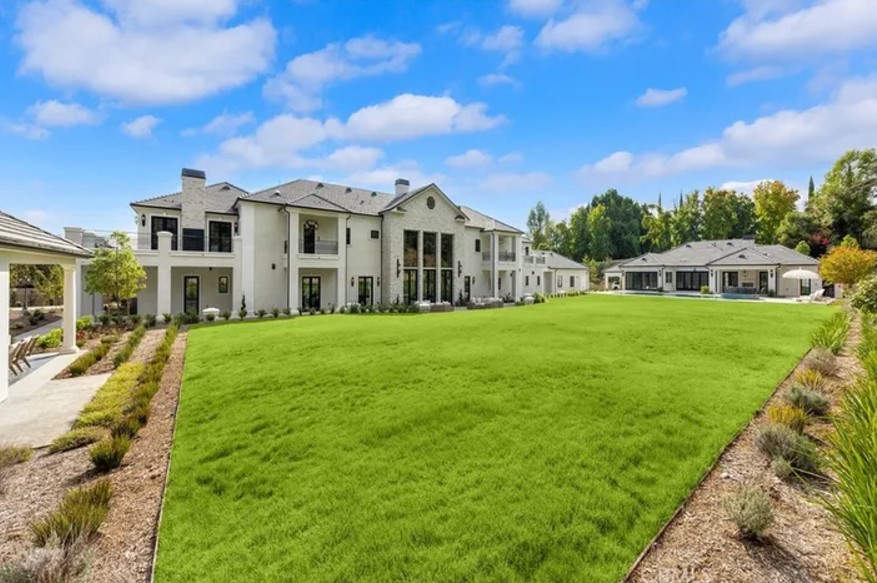Contents
High-end real estate represents more than just high property values; it’s a lifestyle choice, an investment in comfort, and a commitment to exclusivity. The luxury property market is known for its elegance, prime locations, and opulent features, catering to discerning buyers who seek more than just a place to live. With the demand for luxury homes and exclusive neighborhoods growing worldwide, this sector offers incredible opportunities for both personal and investment purposes.
In this article, we’ll dive into the nuances that define high-end real estate, explore key trends, and offer insight into how buyers and investors can navigate this unique market.
What Defines a High-End Property?
A high-end property stands out in a sea of real estate options. But what qualifies a property as “high-end”? While price plays a role, other factors like location, architecture, unique amenities, and exclusivity are equally important. Here are some defining aspects of luxury real estate:
- Prime Location: High-end real estate is often located in prestigious neighborhoods or prime locations — think Manhattan penthouses, oceanfront estates in Malibu, or villas in gated communities in Beverly Hills. Proximity to amenities like top schools, shopping, and cultural hubs adds significant value.
- Architectural Excellence: Luxury properties often boast bespoke designs, whether it’s a modern high-rise condo with panoramic city views or a custom-built estate with unique architectural elements. Quality craftsmanship and the use of premium materials set these homes apart.
- Exclusive Amenities: Features like private pools, home theaters, wine cellars, and even private gyms and spas are common in high-end real estate. Gated communities with high security, access to private clubs, and concierge services also elevate the status of these properties.
- Privacy and Security: Wealthy buyers often seek properties that offer both privacy and security. High-end real estate frequently includes advanced security systems, private entrances, and high walls or hedges to ensure exclusivity and peace of mind.
These characteristics cater to a specific type of buyer — individuals with high net worth who are willing to invest in more than just square footage; they seek lifestyle and status.

Key Trends in the Luxury Real Estate Market
The luxury property market continues to evolve, shaped by the demands and lifestyles of affluent buyers. Understanding these trends can offer insights for buyers, investors, and real estate professionals alike.
1. Growing Demand for Sustainable Luxury
Sustainability is becoming a priority in high-end real estate. Buyers are looking for properties that incorporate eco-friendly materials, energy-efficient systems, and sustainable architecture. From solar panels to geothermal heating, luxury homes are increasingly designed with a low environmental footprint without compromising on style or comfort.
2. The Rise of Remote Work Spaces
With remote work now a lasting trend, luxury buyers are investing in properties that accommodate a work-from-home lifestyle. High-end homes are featuring fully-equipped home offices, soundproof study areas, and even boardroom-like spaces for virtual meetings, making it easier to balance work and personal life.
3. Increased Interest in Wellness Amenities
High-end real estate has expanded to include features that promote health and wellness. Private gyms, saunas, meditation rooms, and even wellness centers are becoming common. Additionally, outdoor spaces with gardens, pools, and areas for physical activity cater to the increasing demand for a healthy lifestyle at home.
4. Smart Home Technology
The integration of technology is a hallmark of modern luxury real estate. Automated lighting, climate control, high-end security systems, and smart appliances are standard in today’s high-end homes. This technology not only enhances convenience but also adds value to the property, making it more appealing to tech-savvy buyers.
Investing in High-End Real Estate: A Smart Move for the Future
High-end real estate is often regarded as a stable and profitable investment. While the upfront cost can be high, luxury properties generally appreciate over time, especially those in prime locations or exclusive communities. Here’s why investing in high-end real estate can be a savvy financial decision:
- Value Appreciation: Properties in exclusive neighborhoods or prestigious cities tend to increase in value due to limited supply and high demand. This steady appreciation makes luxury real estate a reliable long-term investment.
- Rental Income Potential: High-end properties in desirable vacation spots or urban centers can generate significant rental income, particularly if they’re marketed as luxury rentals or exclusive vacation homes. This allows owners to benefit from a consistent income stream while their property value appreciates.
- Portfolio Diversification: Adding high-end real estate to an investment portfolio provides diversification, reducing the overall risk. Real estate assets, particularly luxury properties, often perform differently from stocks and bonds, offering a stable investment in uncertain markets.
- Tax Benefits and Deductions: In some regions, investors in high-end real estate may be eligible for tax benefits, including deductions on mortgage interest, property taxes, and certain maintenance costs, further enhancing the investment’s profitability.
Finding Your Ideal High-End Property
Whether you’re looking for a luxury apartment in the heart of a city or an estate in a gated community, finding the right high-end property can be challenging. Here are some tips for navigating the luxury real estate market:
- Work with a Luxury Real Estate Agent: A real estate agent specializing in high-end properties can offer exclusive access to listings, including off-market options. They also have valuable insights into current trends and can negotiate on your behalf to secure the best deal.
- Identify Must-Have Features: Before you begin your search, make a list of must-have features, such as ocean views, a large outdoor area, or a particular style of architecture. Knowing your priorities will help you narrow down options and make an informed choice.
- Consider Future Resale Value: Even if you plan to live in the property for years, consider its resale potential. Factors like location, architectural style, and demand for properties in the area will affect its value down the line.
- Focus on Security and Privacy: Privacy and security are crucial aspects of high-end real estate. Be sure to assess security features, such as gated access, surveillance systems, and privacy measures, to ensure you’re investing in a property that offers peace of mind.
Frequently Asked Questions (FAQs) About High-End Real Estate
What qualifies as high-end real estate?
High-end real estate is typically defined by factors like price, location, architectural design, exclusive amenities, and a level of privacy and security that cater to affluent buyers.
Is high-end real estate a good investment?
Yes, high-end real estate is often a profitable investment due to its value appreciation, rental income potential, and tax benefits. However, like any investment, it should be approached with careful planning and professional guidance.
What are the top features luxury buyers look for?
Luxury buyers often look for features such as prime locations, unique architectural designs, privacy, exclusive amenities (like private pools and gyms), and state-of-the-art technology for convenience and security.
How do I find luxury real estate listings?
Working with a luxury real estate agent is one of the best ways to access high-end property listings, including off-market options. Online listings on reputable sites for luxury real estate can also be a good starting point.
Are sustainable features important in luxury homes?
Yes, there is a growing demand for sustainable luxury homes that use eco-friendly materials, energy-efficient systems, and green technologies. These features not only reduce the environmental footprint but can also add to the property’s appeal and value.
You May Also Read:





